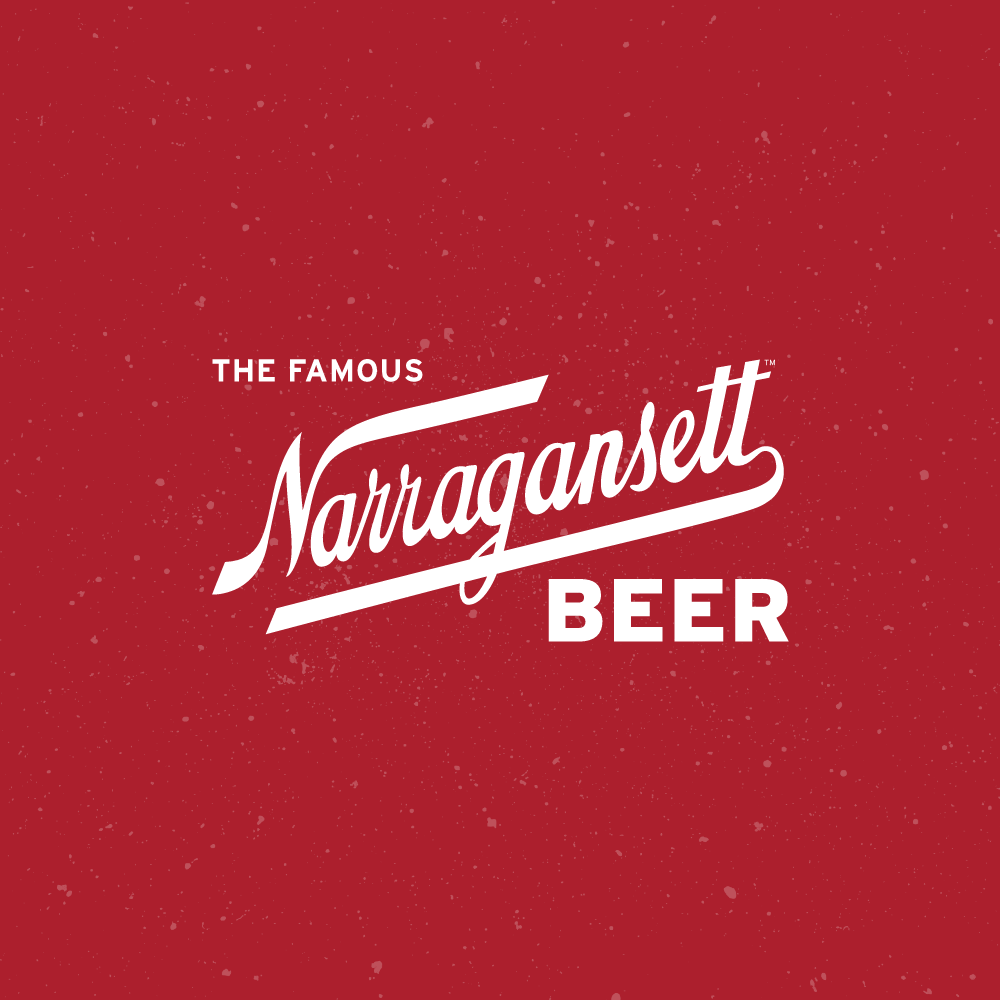We get numerous emails, phone calls, tweets and Facebook posts asking "Where can I find your beer?" or even, "Just went to John's Package Store and didn't see any Narragansett." So we naturally send them to the "Where To Buy" section on our website so they can find another store or bar nearby. Then we go to work with our salespeople and distributors to try and get Narragansett into John’s Package Store (or whatever the store in question might be). So we strongly encourage everyone to sign our petition and let us know where we need to get Gansett in. That said, it can still be a challenge for us little guys to get shelf space in every single store or bar...especially given our finite manpower and resources. Smaller stores don't always have enough space for every brand that the distributor might carry. And more often than not those smaller stores feel that their customers will be upset if they don’t have every single package Bud makes available to them. A store with only 6 cooler doors might need 4 of those doors for the "Big 3" alone (Bud, Miller, & Coors products). That doesn’t leave much space for the craft beers and regional heritage beers like Gansett. So in some cases, the smaller breweries end up getting squeezed off the shelves in those stores. In areas where this is happening more frequently, some smaller beer companies might feel neglected and want to switch to a different wholesaler / distributor that will really fight for them. This is, of course, easier said than done. And with certain legislation in place, especially in Mass, it makes it even harder for brewers to switch wholesalers in an expedient manner, if at all. To back up these thoughts, here is a great article in the Telegram from Harpoon President, Dan Kenary and Sam Adams President, Martin Roper.
Crafting fairer rules about beer
By. Dan Kenary and Martin Roper
It’s summer and thoughts turn to backyard barbecues and picking up a cold beverage at a local store. But, if you’re looking for your favorite craft beer, there’s a chance the shelves could be getting sparse. While it’s usually invisible to the consumer, getting beer to stores requires logistics provided by wholesalers who sell and deliver multiple products. Small brewers struggle to obtain distribution and visibility for their beers, as it’s often a challenge to get attention from wholesalers who are focused on the big brewers.
A little-noticed piece of legislation currently on Beacon Hill would weaken craft brewers’ ability to achieve fair distribution. It threatens the 30-plus Massachusetts-based small brewers, as well as small brewers from around the country. Ultimately, it could make it more difficult for Worcester-area residents to swing by their local "packy" to discover new beers, or even to find new styles from more well-known local brewers like Harpoon and Samuel Adams.
Small brewers distribute their products by contracting with wholesalers who are supposed to support and help to grow their brands. Mergers in the ranks of global brewers have led to consolidation of wholesalers. Small, local craft brewers now have even less clout with wholesalers, and the big global brewers have more influence.
This would not be a problem if craft brewers could give the boot to nonperforming wholesalers. In most businesses, if a vendor fails, the customer finds a new supplier. But in Massachusetts, it’s nearly impossible to change wholesalers without a drawn-out and expensive legal dispute. Franchise laws that are still on the books were written decades ago ’ before the debut of "craft beers" ’ to protect local wholesalers from the large national or global brewers.
Massachusetts wholesalers have legitimate concerns about recent consolidations among the global brewers.
Their reaction has been to seek additional legislation, in the form of House Bill 4743. The bill would further tighten already restrictive franchise laws, making it even more difficult and expensive for any brewer ’ large or small ’ to change wholesalers, even if the wholesaler fails to perform and is not living up to contractual obligations. This bill could help wholesalers from being unfairly pushed around by the mega-brewers, but it is damaging to small brewers, from whom such protection is not needed.
The Massachusetts Brewers Guild, formed three years ago to promote craft brewing and protect the interests of craft brewers in Massachusetts, is proposing that H.4743 be amended to exclude small brewers from unfair franchise laws. The amendment is supported by the Brewers Association, an organization that represents more than 1,400 craft brewers throughout the country.
It should be noted that small brewers never move their brands arbitrarily from wholesaler to wholesaler. Most wholesalers serve the craft brewers well. But if a craft brewer feels ignored by a wholesaler, it should have the right to change wholesalers easily.
What does all this mean for the Worcester-area craft beer consumer? If H.4743 is passed without the amendment proposed by the Brewers Guild, it will almost certainly decrease the variety of craft beers on store shelves that beer drinkers desire.
Craft brewers have created a new, vibrant industry during a period when most beer sold in the United States is controlled by two international conglomerates. Massachusetts breweries employ more than 1,100 people and pay millions of dollars in state taxes each year.
In Massachusetts, we need to encourage the growth of all small business and not put unnecessary barriers in their way.
Dan Kenary, a Worcester native, is president and co-founder of Harpoon Brewery and a board member of the Massachusetts Brewers Guild. Martin Roper is president of The Boston Beer Company.

